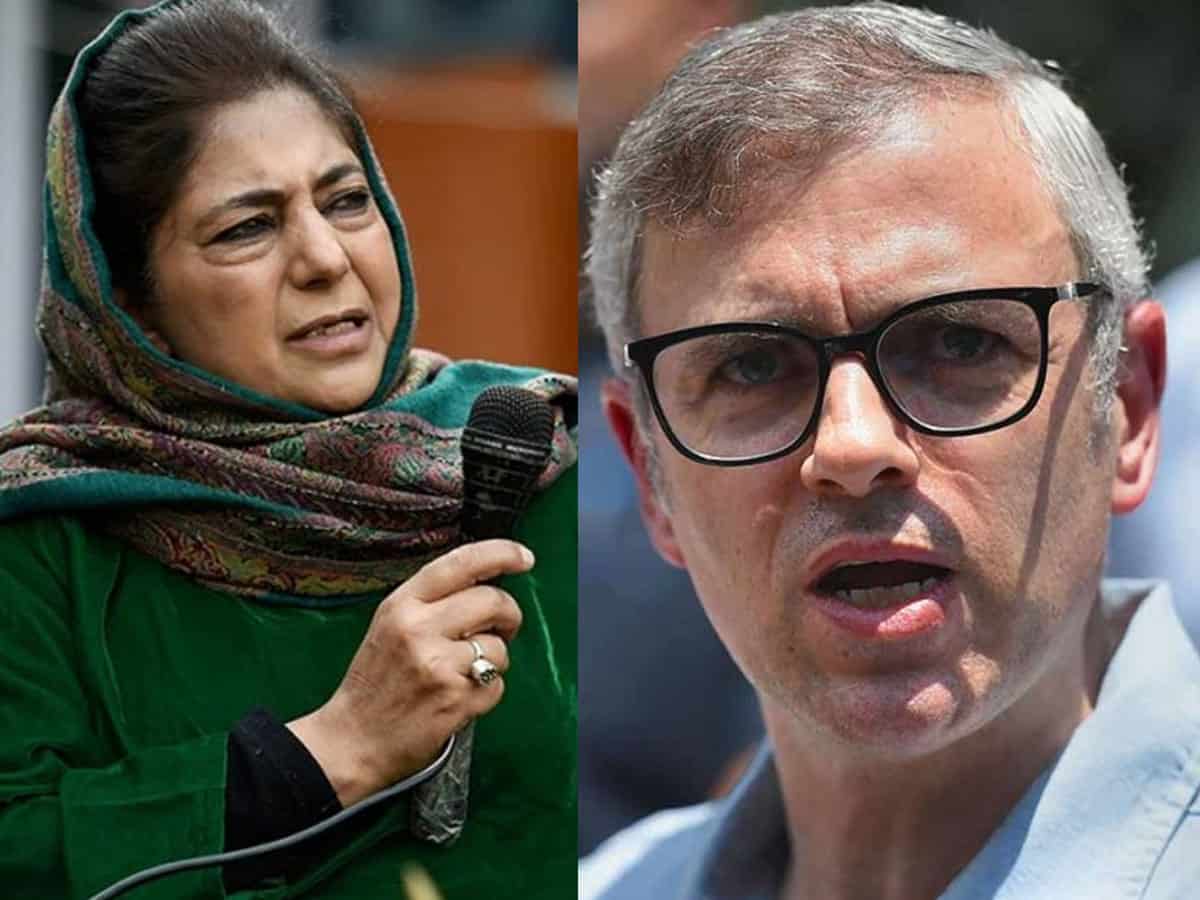
Why Opposition Parties in Jammu and Kashmir are desperate for all sorts of elections? If some think that it is due to their urge to clinch the electoral battles in their favour, it is only half the answer. This time, their struggle is far beyond the hope to test their respective political strength in the elections.
It is now a question of their survival. They are caught in a do-or-die phase of their political life. It no longer is the issue that the BJP is scared of facing elections because of the gaps between what it had promised to the people of J&K at the time of the abrogation of Article 370 and the reality on the ground. Though the Centre that is directly ruling this territory initiated massive development programmes, and prioritized anti-terrorism operations, yet when it comes to elections, it is wary of making a firm commitment. It throws the ball in the court of the Election Commission of India, which the Opposition believes is a ruse to save the BJP from the “tremendous electoral humiliation” that the party is in for if the polls are held today or tomorrow. But that is less of a solace for the opposition as it is also not getting the opportunity to test its strength or popularity among the electorate. It fears a dead end to its roadmap.
The real concern is whether the Opposition can continue to occupy the political space and prestige that it believes it has at the moment. Their problem is that they cannot demonstrate more than what they have been able to display in public view unless the BJP decides to have the elections. The Centre and the BJP are on the same page, “we are ready for polls, but the call has to be taken by the Election Commission of India.”
The battle lines cannot be drawn on the electoral field until the narrative changes from single-minded approach that development is quintessential to Jammu and Kashmir and it cannot be replaced by the elections or the political rule. This set of thinking is based on the belief that all that has been achieved and accomplished will go haywire in the political hands.
J&K, despite living with a downgraded status of Union Territory, continues to be as important and as sensitive place inhibited by the people hyper-sensitive and conscious of their political and religious identities as they were before the abrogation of Article 370 and when they boasted of living in a special status state. And the people know that they occupy a place of great importance in the international line of thinking.
True, as it is that India occupies a singular position in the comity of nations that held successful G20 summit, moved to the moon in a style and the lure of its growing economy and market, have made a majority of nations not to touch the issues which may annoy Delhi. No country wants to bear the consequences of annoying India. But there have been occasional suggestions that India needs to check the backsliding of democracy. Delhi might dismiss all this as part of an agenda of the inimical forces, the elements of truth, however, cannot be ignored. Jammu and Kashmir offers a classic case where democracy is being redefined – normalcy and peace under direct Delhi rule than having the elected bodies as voice of the people. Delhi is under obligation, as per its own promise, to grant the opportunity to the people of the place to have their elected government.
The opposition, mainly comprising of the National Conference, People’s Democratic Party, and Congress – these three parties had 55 members in the Legislative Assembly of 87, elected in November -December 2014 for six years. The BJP had 25 members elected on its symbol. The life of the Assembly of six years , constituted in March 2015 was to last till March 2021, was cut short in November 2018 – it was dissolved by the then Governor Satya Pal Malik after seeking approval from the political leadership at the Centre. At that time, the Assembly still had 28 months of life left.
That should have led to the holding of the Assembly elections by May 2019. That did not happen. The security situation was cited as a reason. In fact, these conclusions were drawn without any word from the Election Commission of India on the issue, nor any exercise was undertaken to sum up the situation vis-à-vis elections. The ECI, however, held the parliamentary polls as scheduled. It created different silos for the democracy at the national and the state level. Till date, there is no explanation which could convince that why the Assembly polls have not been held for so long. Now it is not the question, the delay of the polls, but whether these will be held ever.
Since June 2018, when the elected government of the PDP-BJP alliance was made to fall after the BJP withdrew support to the Mehbooba Mufti-led coalition government, the political activities of these parties were visible only in public rallies or some indoor conventions and conferences. These activities were also put in sleep mode after the abrogation of Article 370 on August 5, 2019 – as all the major political leaders, including Farooq Abdullah, his son Omar Abdullah, both of whom are former chief ministers and their successor PDP chief Mehbooba Mufti were detained or placed under house arrest. Any rally or even a corner meeting were out of question. The shadow of the restrictions on political activities have not disappeared completely. The electoral battles were the only hope left with them to resurrect their parties as vibrant political institutions. They are not saying it, but they are smelling erosion of their institution, and that’s why elections of all hues are being taken away from them.



